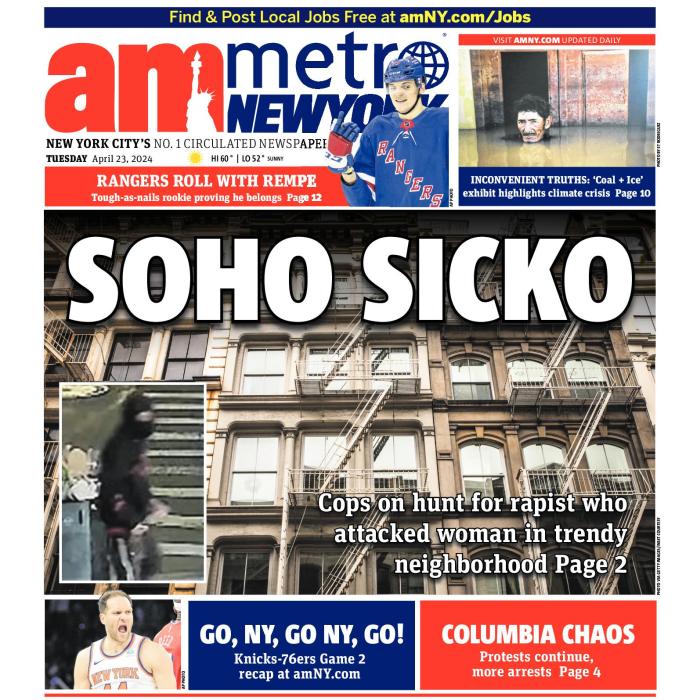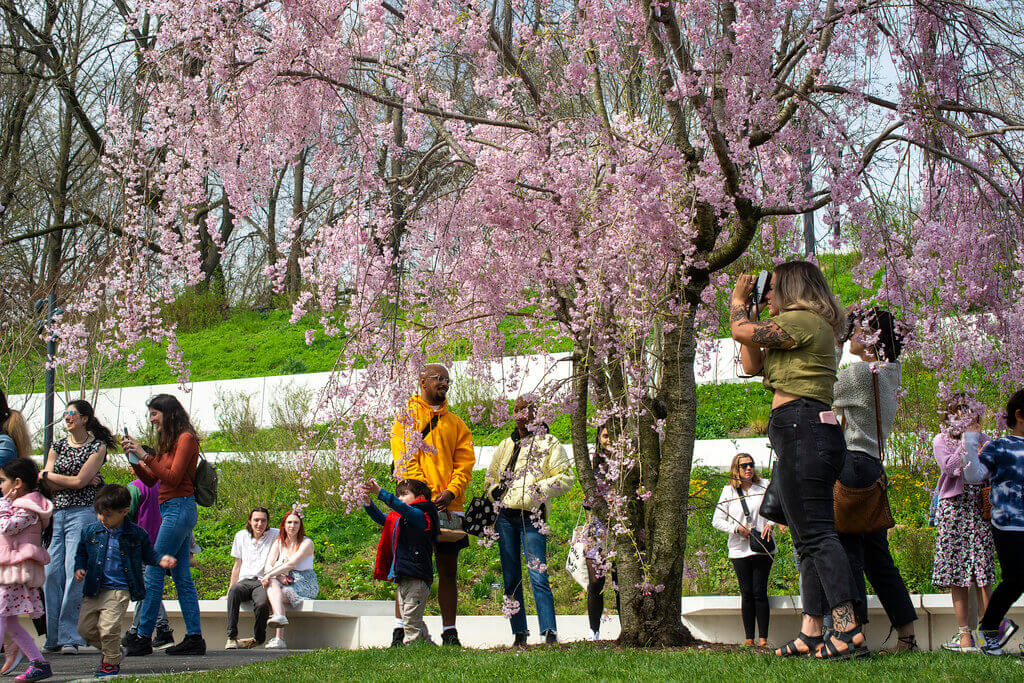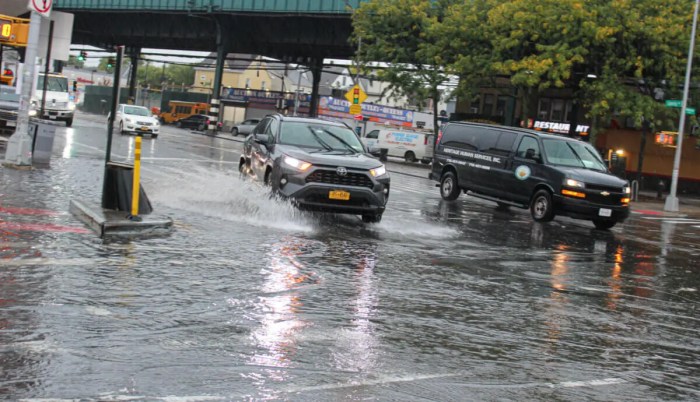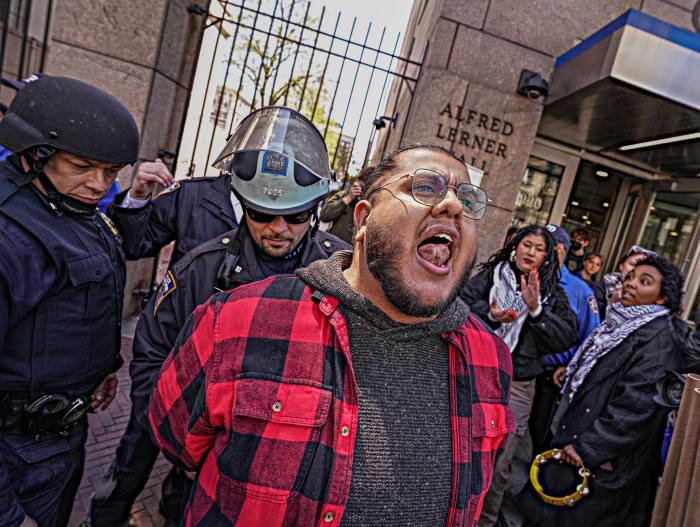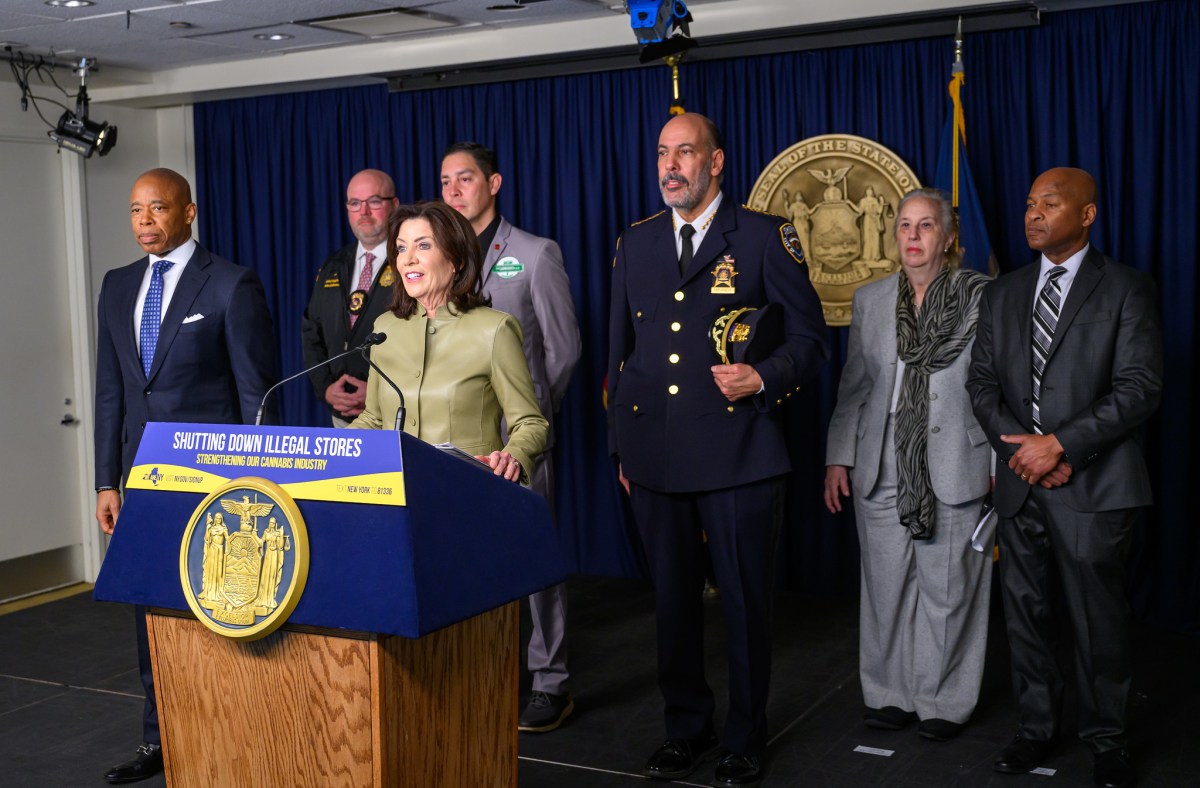
As a narcotics cop with the NYPD, Joanne Naughton made countless low-level, marijuana-related arrests. At the time, she believed she was doing the right thing. She wholeheartedly supported the war on drugs.
It was only when she retired from the force in 1987 and started teaching criminal justice at Mercy College that it dawned on her: the war on drugs was counter-productive and harmful, and was ruining the lives of those she herself had locked up.
Naughton is part of an organization called Law Enforcement Action Partnership or LEAP, which consists of a network of former members of the criminal justice system who advocate for an end to drug prohibition, and more recently, also tackle criminal justice issues. As a speaker for the organization, Naughton strives to voice support for marijuana legalization, a policy that’s being heavily debated amongst New York lawmakers.
“All we did was make life harder and harder for people who, many of them, already had a problem. If someone is addicted to anything, it’s taken over their life,” Naughton said, stressing that drug addiction is a health issue, not a criminal justice one. “Cops can’t fix that. Prosecutors can’t fix that. Courts can’t. Jails can’t.”
Sitting alongside Naughton and nodding heavily was retired NYPD Deputy Inspector Corey Pegues, who said that in his 21 years with the force, he had never come across an incident where smoking marijuana was the “aggravating factor,” or the reason that led someone to commit a crime.
“Time is up. We need to get rid of [prohibition]. We keep locking up black and brown young kids, ruining their lives, their families. It has to stop,” Pegues, who also is a speaker with LEAP, said. “You can’t lock your way up out of drug addiction.”
‘All about the numbers’
In the past three years across New York City, black people were arrested on low-level marijuana charges at eight times the rate of white people, and Hispanic people were arrested for similar offenses at five times the rate of white people, a New York Times analysis found. While marijuana-related complaints were lodged with 311 or with the police department at the same rate, arrests were made at higher rates in neighborhoods with predominantly black and brown residents, the Times report added.
Under Mayor Bill de Blasio, the NYPD makes 20,000 marijuana-related arrests per year, according to a study done by the Marijuana Arrest Research Project and commissioned by the Drug Policy Alliance. Eighty-six percent of those arrestees are blacks or Latinos, the study found.

“You go where it’s easy to find people. You go where there are people hanging out, people playing outside, young people,” Naughton said of NYPD policing tactics during her career. “Of course, you don’t want to upset people who might have political power. You don’t want to go into neighborhoods where people with political power might live.”
Echoing her reasoning, Pegues, who used to be a drug dealer before he became a cop, said that police “don’t even look for” crime in white neighborhoods, if they can go straight to the minority community.
As for why they put up with such tactics, Pegues said, “It’s all about the numbers game.”
In 1994, the NYPD developed a management tool that recorded crime statistics called CompStat. As a police officer before and after the implementation of the model, Pegues stressed how policing tactics transformed from “reactive” to “proactive.”
Quality-of-life issues, such as urinating on the street or drinking in public, started being policed more, which reflected in the arrest numbers, he said. At regular CompStat meetings, Pegues said he felt pressured to maintain or increase arrest numbers to convince his superiors of a decrease in crime in his precinct, he added.
“Throughout my career, I would always see drug addicts, crackheads, alcoholics — that’s what [police officers] were bringing into the precinct all the time. They get their numbers, bring people in, like a warehouse or a factory. It just goes and goes and goes” he added.
The NYPD needs to figure out a better way to assess if police officers are doing a good job, Naughton said. It can’t just be about the numbers, she said.
“You do what you’re supposed to do. You do what’s required of you,” Naughton said, defending her narcotics policing. “It’s a job, to pay the mortgage and to buy clothes and put food on the table.”
Both ex-cops stressed that the police department is a hierarchical organization, where orders trickle from the top down. Cops do not make policy, Pegues and Naughton stressed.
Decriminalization just a ‘Band-Aid?’
Recently, Manhattan District Attorney Cyrus Vance announced that in light of marijuana-related arrest disparities between black and brown and white people, his office would stop prosecuting pot offenses beginning August 1. Recently, de Blasio announced that he would order the NYPD to stop arresting people for smoking pot in public, and issue them summonses instead.
While a step in the right direction, Naughton said that simply decriminalizing marijuana is not enough. A summons still means that the law was violated, she said. It means that the person who received the summons would have to take time off of work and go to court, which they might not be able to do without incurring financial consequences. If they ignore the summons, an arrest warrant would be issued for them, she added.
Calling the decriminalization policy “a Band-Aid over a four-inch gash,” Pegues said that a summons-based approach would still be a burden on the community.
Currently, there is a 30-day working group within the NYPD researching marijuana enforcement tactics.
“The NYPD will review our practices to ensure enforcement is consistent with the values of fairness and trust at the root of neighborhood policing,” according to a statement made by police Commissioner James O’Neill on May 15. “The NYPD has no interest in arresting New Yorkers for marijuana offenses when those arrests have no impact on public safety.”
The merits of decriminalizing marijuana is being debated on the state level as well as among city politicians. The release of a study commissioned by Gov. Andrew Cuomo regarding the effects of marijuana legalization is imminent. A New York state senator also has recently expressed optimism for a bill that would legalize marijuana statewide.
Naughton believes that marijuana legalization would largely stamp out the street trade, comparing the likely demise of illicit sales to bootleggers becoming irrelevant after Prohibition ended.
“People we put in jails and prisons are people with addictions. How are we helping them? They too deserve to be helped. They’re decent people,” Naughton said. “We call them ‘junkies’ but they are people.”
Nodding, Pegues added, “We need to free up police to actually do police work.”
